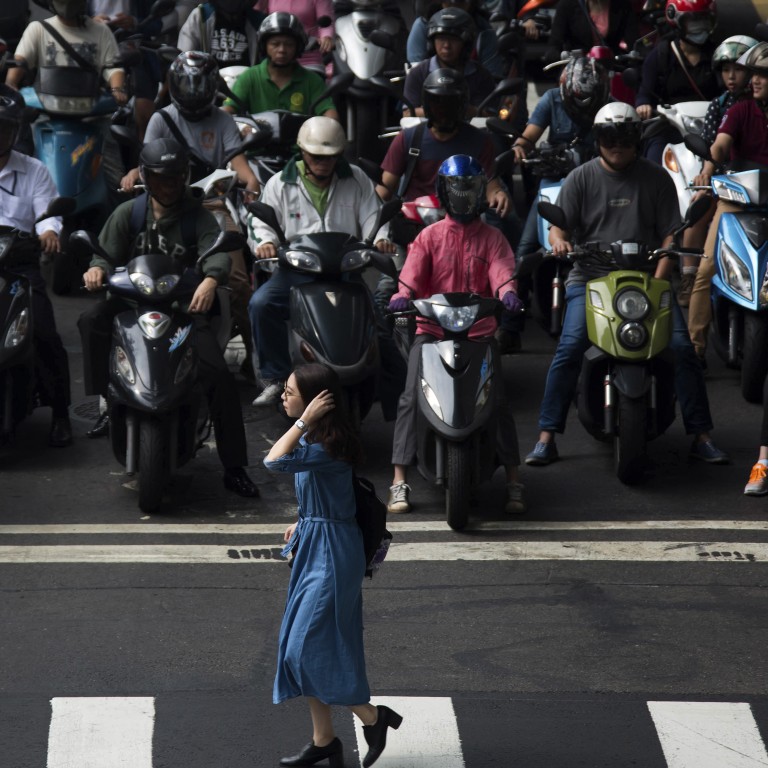
Sino-Taiwanese relations remain a bridge too far
Chih-yu Shih says as long as the Taiwanese are torn between their desire for independence and reliance on the mainland, there is little hope for a reconciliation with Xi’s China

China’s policy in both Vietnam and Taiwan is a cycle of resistance and reconciliation. Together, they testify to China’s difficult relationships with weaker neighbours
In hindsight, it appears that peace is almost a lick and a promise whenever sovereignty comes under threat. Therefore, the current peace overture could be a harbinger for confrontation in the next cycle.
Xi’s peace overtures, pertaining both to the maritime territorial dispute with Vietnam and the cross-strait confrontations on Taiwan’s identity, unequivocally allude to sovereignty. The last of his three summit meetings – with Taiwan’s president, Ma Ying-jeou – drew the most attention. However, the applause Xi enjoyed in official circles stood in stark contrast with the raucous protests against the meeting among Taiwan’s pro-independence crowd.
China’s policy in both Vietnam and Taiwan is a cycle of resistance and reconciliation. Together, they testify to China’s difficult relationships with weaker neighbours. In a nutshell, the Taiwanese people were generally ambiguous, and even hostile if they embrace the idea of independence, about the Xi-Ma summit. The dilemma is between peace and sovereignty. China allows only the former, though its peace offer comes with economic and cultural engagement. Taiwan is a Confucian society, like China, and their shared background is conducive to cross-strait marriages, and all kinds of exchanges in study, employment and business.
READ MORE: Full coverage of the Xi-Ma summit

Vietnam faces a similar predicament. Dr Huang Chiung-chiu, professor of East Asian Studies at Taiwan’s National Chengchi University, says two roles prevail in the country’s image of itself with regard to relations with China: as a sovereign state and also a vassal state.
East Asian nations once under the yoke of colonial rule have learned to value sovereign independence and equality. Vietnam’s quest for an alliance with the US or Japan to balance China’s power, while also jumping on the China bandwagon to seek economic opportunities, is typical of sovereign states in the region. National interest concerns guide the swing between resistance and compromise.
At the same time, Vietnam’s legacy of a vassal state also has a psychological effect. This can be seen in its sensitivity towards anything relating to China, and also its expectations that China would make concessions in case of a bilateral dispute.
This creates cycles of calculation and anxiety.

READ MORE: President Xi Jinping tells Hanoi parliament China and Vietnam can survive ‘disruptions’, but fails to mention South China Sea dispute
For example, Xi’s decision to drop his title in his meeting with Ma , using simply “Mister”, so as to facilitate the meeting, was greeted in some quarters by suspicion instead of appreciation.
Perpetual peace is thus unlikely. The drive for additional sovereign rights will not cease in the face of the suzerain other.
Taiwan is in a more difficult position than Vietnam. Vietnam has a third role, as a socialist state. Its Communist Party relies on various resources in the Sino-Vietnamese relationship to maintain legitimacy. China’s socialist model of reform, for example, is an important political inspiration in Vietnamese politics.
By contrast, Taiwan’s relationship with the US gives it a third role – yet another vassal-state role, with the US playing the suzerain state this time.
The Xi-Ma summit dampens the Taiwanese pursuit for sovereignty. On the whole, Taiwan’s third role, as a “vassal state” of the US, dooms Xi’s peace intentions.
Chih-yu Shih is a professor in the Department of Political Science at National Taiwan University
